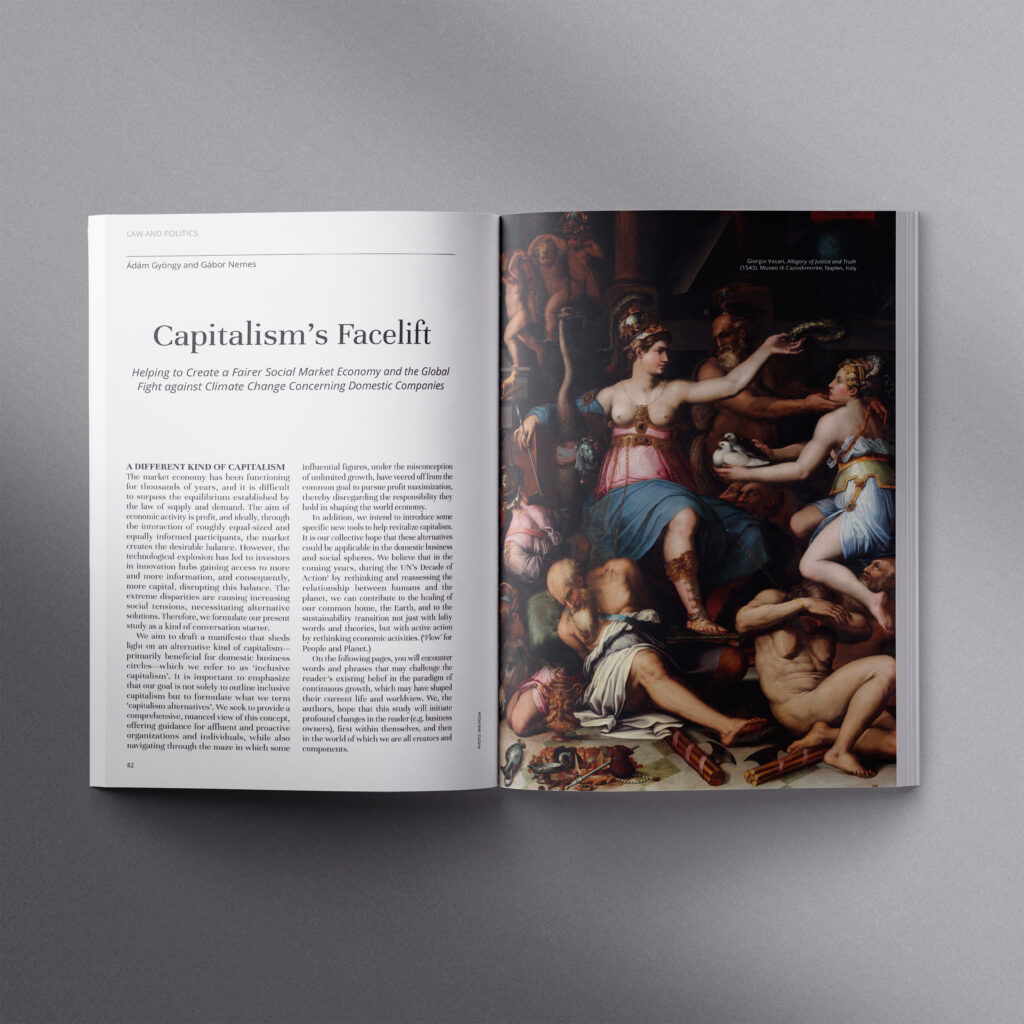Volume 4, Number 3 of the print edition of Hungarian Conservative has just been published. Among other insightful articles, in its Current section you will find an analytical piece by House of Lords member David Frost on the recent general election in the United Kingdom, which ended with the first victory of the Labour Party since 2005.
In the article, Chief Negotiator for Exiting the European Union from 2019 to 2020 and the Prime Minister’s Europe Adviser from 2019 to 2021 David Frost writes that one of the main reasons for the magnitude of the Conservative Party’s loss was that the vote on the right was divided. As Lord Frost points out in his piece, the Labour Party only increased its vote total and vote share slightly since 2019, when it suffered a major loss. The Conservative Party, however, got less than half of the popular vote total it got in 2019.
As the author put it, ‘This was an election lost by the Conservatives more than won by Labour.’ However, he does not deny the fact that the country has shifted to the left in the last five years. Lord Frost elaborated on the fraction on the British right by saying:
‘The Conservative Party vacated mainstream conservative territory—national independence, strong borders, control of taxation and spending, social conservatism—in favour of government-knows-best collectivism, effectively open borders, a high-cost Net Zero policy that drove up energy bills, tax rises, and a persistent flirtation with Woke social liberalism.
Incredibly, there are many party figures arguing for more of this.
Yet if you want those policies, you are much more likely to vote for a left-wing party in the first place.
If the Conservative Party tries to deliver them too, all it does is leave a gaping hole to its right. In those circumstances, only brand loyalty and traditional instincts keep many conservatives voting for the Conservative Party. What this election showed is that such loyalties are waning fast.’
Also in the Current section, we have an opinion article by Fidesz founder and MP Zsolt Németh titled ‘Let Us Be Clear: We Do Not Serve Russian Interests!’ that responds to criticism of the Russia policy of the Hungarian ruling party. Meanwhile, in the Changing World Order section, you can read an analysis by our very own editor-in-chief and former Ambassador to Ireland Tamás Magyarics, currently a Professor at the American Studies Department at Eötvös Loránd University, under the title ‘Playing Second Fiddle: Europe in the Atlantic Community’. Office Manager and sustainability expert at the Hungarian Catholic Bishops’ Conference Ádám Gyöngy and HR Consultant, Chief Security Officer, Aviation and GreenHR expert Gábor Nemes co-authored the essay ‘Capitalism’s Facelift’ in the Law and Politics section, focusing on a fairer social market economy and the global fight against climate change regarding domestic firms.

PhD student at the ELTE Doctoral School of Political Science and lecturer at various universities Miklós Pogrányi Lovas contributed an essay titled ‘Fifty Shades of Conservatism’ to the Political Philosophy section. In it, he writes that conservatism has an elusive definition, with scholars and thinkers defining the term in their own way. However, this pursuit of finding a consensus definition has value per se. On recent developments in conservative thought, Professor Lovas writes:
‘Some conservative thinkers have apparently acquiesced to the ethos of modern times. They believe that conservatism must become an ideology—if it has not been an ideology all along. A key feature of ideologically-minded conservatism is its self-proclaimed refusal to fight realities. Conservatives of this bent not only accept as fact the modern intellectual climate and the recent developments in the realm of ideas, but engage in a dialogue with them, often positively integrating their propositions.
This is how conservatism becomes an ideology in the thought of Robert Nisbet, and postmodernity an inspiring partner to debate for Márton Békés. The conservatism of ideology is typically marked by its focus on the present and its allegiance with the objectives of daily politics. It tends to undervalue the role of morals in politics, foregrounding stability and political knowledge instead.’
To find out what else this freshest edition has in store for you, pick up your copy of the magazine at your local bookstore or newspaper stand; or
you can subscribe to our quarterly magazine on our website
to make sure you never miss an issue.








